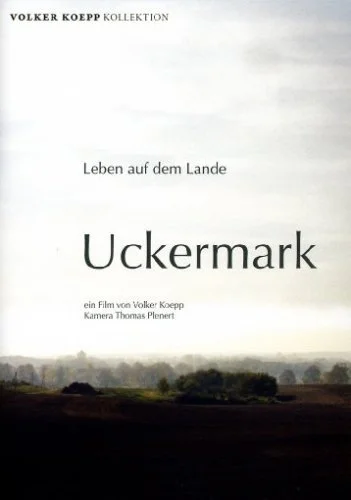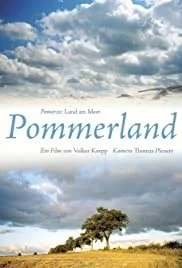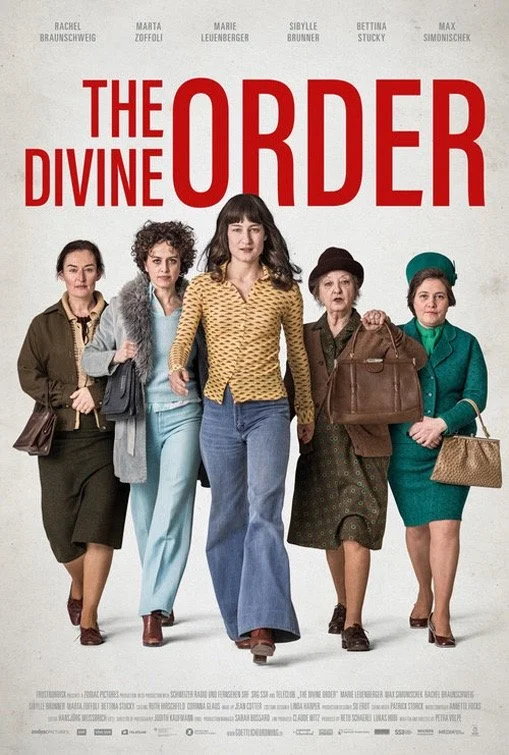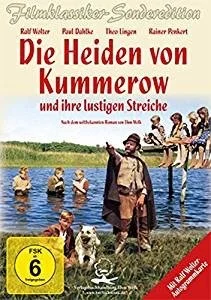- Activism
- Animation
- Asylum
- Austria
- Berlin
- Black Germans
- Childhood
- Cologne
- Colonialism
- Comedy
- DDR
- Documentary
- East/West Germany
- Environment
- Food
- Hamburg
- Health
- Holocaust
- Immigration
- Intergenerational Families
- Jewish
- Judicial system
- Lesbian/Gay
- Lübeck
- Munich
- National Socialism
- Politics
- Pomerania
- Racism
- Religion
- Sexism
- Short films
- Stuttgart
- Switzerland
- Twins
- Weimar Republic
Uckermark: Leben auf dem Lande
Volker Koepp nimmt uns mit in die Uckermark, jenen so dünn besiedelten Landstrich nördlich von Berlin. Wie auf einer Bühne versammelt der Film eine Schar von Übriggebliebenen und Heimkehrern der Nachwendezeit. Landarbeiter, Bauern und zurückgekehrter Adel, ihre Erzählungen und Lebensgeschichten. Bisweilen skurril und tragikomisch, manchmal melancholisch und von trotzigem Idealismus.
Pommerland
In his documentary film, Volker Koepp portrays the picturesque Polish region of Pomerania. But although the region appears to be idyllic, its inhabitants are struggling with big problems. The villages and cities of Pomerania that traditionally live from agriculture are hit by unemployment rates of up to 75% after the meltdown of the state farms. While most of the young people leave the region, some of them take their chances and start fresh – for instance, a young couple that tries to rebuild an agricultural farm with the help of EU funding. Furthermore, older inhabitants, including a spry 90-year old retiree from the Uckermark region who grew up in Pomerania, tell stories about the region′s eventful past.
Schattenland: Reise nach Masuren
With Schattenland Volker Koepp and his long-time cameraman Thomas Plenert take us on a trip to the north-east of Poland to Masuria - probably the best known landscape of former East Prussia. Encounters with people who appear to be stranded away from the tourist areas of Masuria: farmers who use the short summers in the supposed idyll to wring grain from the barren soil. Ukrainians who were forcibly relocated after the Second World War and who moved to their old homeland after Poland's accession to the EU.
The Divine Order
The Divine Order (German: Die göttliche Ordnung) is a 2017 Swiss comedy-drama film directed by Petra Volpe. It was selected as the Swiss entry for the Best Foreign Language Film at the 90th Academy Awards, but it was not nominated.
The film centres on Nora Ruckstuhl, a housewife and mother in a small village. She publicly advocates for women’s suffrage in Switzerland to be voted on in a 1971 referendum. In the early 1970s as black power, women’s liberation and the sexual revolution are overtaking America, Nora Ruckstuhl is a housewife living in a small Swiss farming village where she lives with her husband, Hans, their two sons, and her father-in-law. When Nora suggests that she might like to go back to work as she is bored of housework her husband suggests that they have another child.
Die Heiden von Kummerow und ihre lustigen Streiche
Das pommersche Dorf Kummerow zur Zeit Bismarcks: Pastor Breithaupt, der streitbare Seelenhirte der Gemeinde, hält zwar viel von Tradition, von heidnischen Bräuchen aber gar nichts. So ist ihm der Ritus des “Heidendöpen,” den die Kinder von Kummerow jedes Jahr leidenschaftlich pflegen, zutiefst zuwider. Jahr für Jahr stehen sie im eiskalten Wasser des Mühlbachs, und wer es am längsten aushält, wird zum König gekrönt. Dass Breithaupts Jüngste, Ulrike, die “Braut” bei diesem Wettbewerb spielt, verschlimmert die Sache natürlich erheblich.





